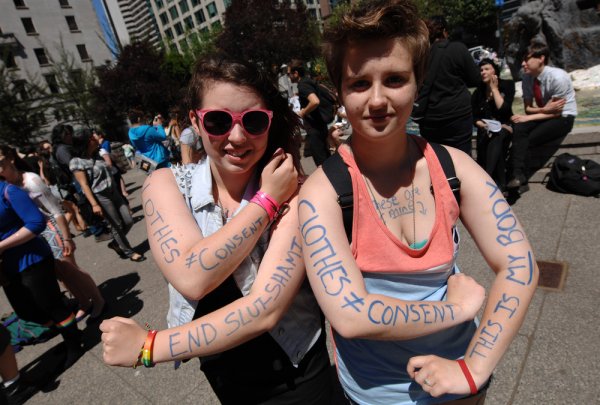Respect. Now. Always. That was the united message from all 39 Australian universities last year ahead of a national survey into sexual assault and harassment on university campuses.
That message is repeated resoundingly today upon the release of Change the Course, a report by the Human Rights Commission based on the results of the confidential survey of 30,000 students across Australia.
Key findings
The report finds that 21% of students were sexually harassed, and 1.6% of students were sexually assaulted, in a university setting in 2016.
Women were almost twice as likely as men to have been sexually harassed, while of those students who were harassed 94% did not make a formal report or complaint to anyone at the university.
Alarmingly,44% of students who identified as bisexual and 38% of students who identified as gay, lesbian or homosexual weres exually harassed in a university setting in 2016, compared with 23% of students who identified as heterosexual.
The majority of students had little or no knowledge about where they could go to formally report or make a complaint about an experience of sexual harassment (60% of students) or sexual assault (62%).
Students who were sexually assaulted in a university setting in 2015 or 2016 were most likely to have experienced the most recent incident at a university or residence social event (21%), on public transport to or from university (15%), on university grounds (10%) or at a residential college or university residence (10%).
The Human Rights Commission therefore made nine recommendations based on these findings, calling on Vice-Chancellors to take direct responsibility for the implementation of these recommendations, including decision-making and monitoring and evaluation of actions taken.
Sex Discrimination Commissioner Kate Jenkins stated that universities needed to implement a widespread cultural shift to ensure that all students were educated about their university’s zero tolerance attitude towards sexual assault and harassment, and were made aware of the support services and reporting processes in place.
In light of the prevalence of incidents taking place in on-campus residential settings, the report recommended that residential colleges and university residences should commission an independent, expert-led review of the factors which contribute to sexual assault and sexual harassment in their settings.
 In response to the report’s findings, Universities Australia has announced a 10-point action plan to help combat what has up until now been a largely unspoken problem. Two of the actions to be implemented are:
In response to the report’s findings, Universities Australia has announced a 10-point action plan to help combat what has up until now been a largely unspoken problem. Two of the actions to be implemented are:
Developing respectful relationships education for Australian university students
Universities Australia will develop a respectful relationships education program tailored for students in Australia’s universities. The program will be evidence-based and draw on best practice. It will take into account the diversity of the university student population and the diversity of Australian universities. It will build on existing education initiatives already in place at a number of institutions.
Extending first responder training to more frontline university staff
As universities seek to institute, upgrade or extend their first responder training, Universities Australia will coordinate the provision of this specialist training for university staff through Rape and Domestic Violence Services Australia or an equivalent local provider. This training will equip more university staff with the skills to respond effectively and compassionately when someone discloses an experience of sexual assault or sexual harassment.
Commissioner Jenkins said that this effort is “a promising sign of commitment from universities to be transparent about their progress and drive positive change within their institutions”.
All 39 Australian universities have committed to releasing their institutional data to the public. Commissioner Jenkins said that this effort is “a promising sign of commitment from universities to be transparent about their progress and drive positive change within their institutions”, however the question remains as to whether the initiative goes far enough to eliminate sexual assault on campuses.
While the report is much-needed, its focus solely on the experience of students does not include data on the rates of sexual assault perpetrated on staff members. Such a report would be an invaluable next step in providing a comprehensive picture of the problem.
If you have experienced sexual assault or sexual harassment and would like to speak to someone for support or information, the Canberra Rape Crisis Centre provides counselling information and support for women and children who have experienced sexual violence. They can be contacted from 7am to 11pm on (02) 6247 2525.
Universities Australia has launched a 24/7 interim phone line in response to the report. The support line is operated by Rape and Domestic Violence Services Australia and can be reached at 1800 572 224. It will be in operation until 30 November 2017.
1800RESPECT (Phone: 1800 737 732) can provide counselling 24-hours a day, 7 days a week.




